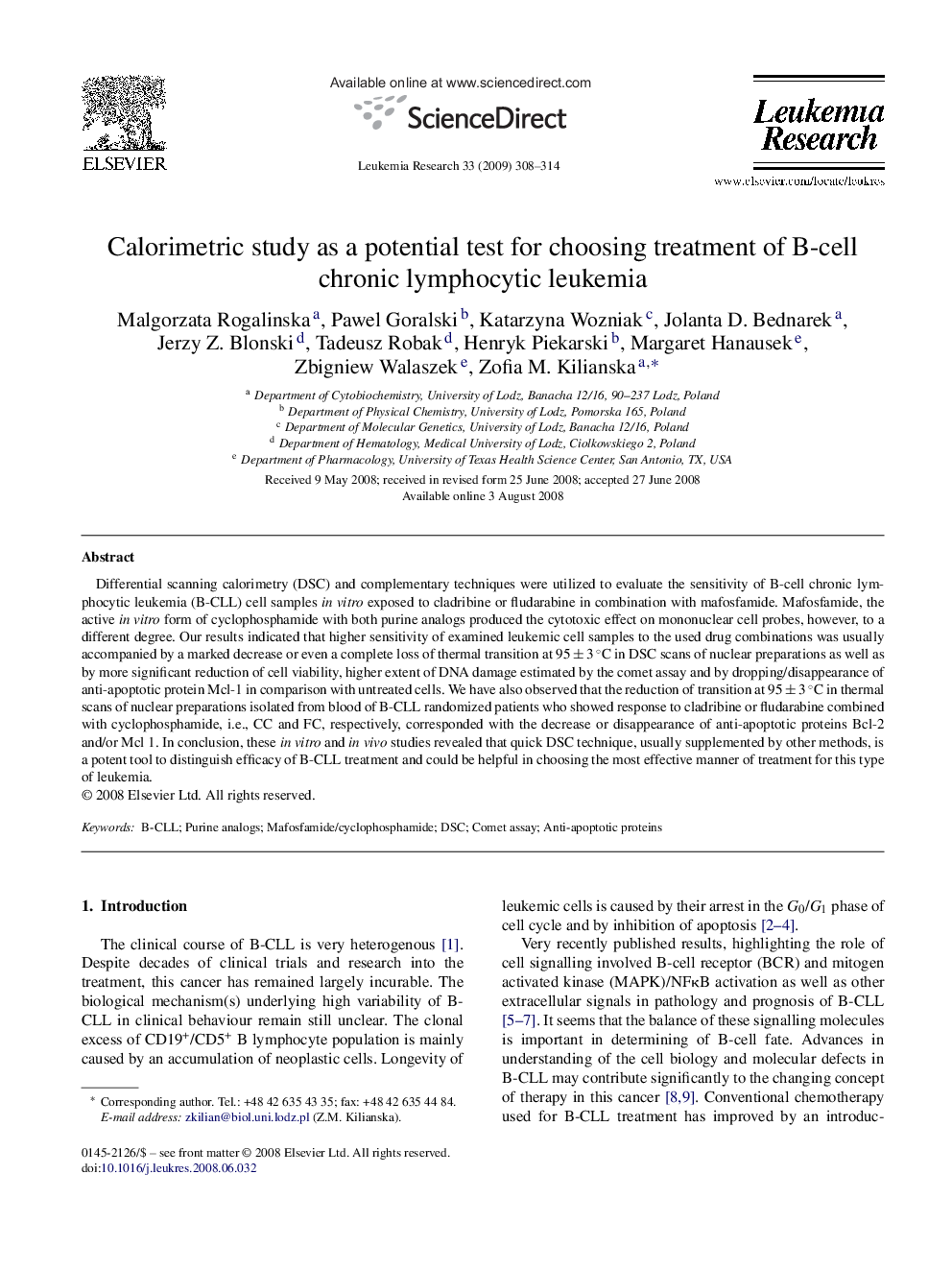| Article ID | Journal | Published Year | Pages | File Type |
|---|---|---|---|---|
| 2139027 | Leukemia Research | 2009 | 7 Pages |
Differential scanning calorimetry (DSC) and complementary techniques were utilized to evaluate the sensitivity of B-cell chronic lymphocytic leukemia (B-CLL) cell samples in vitro exposed to cladribine or fludarabine in combination with mafosfamide. Mafosfamide, the active in vitro form of cyclophosphamide with both purine analogs produced the cytotoxic effect on mononuclear cell probes, however, to a different degree. Our results indicated that higher sensitivity of examined leukemic cell samples to the used drug combinations was usually accompanied by a marked decrease or even a complete loss of thermal transition at 95 ± 3 °C in DSC scans of nuclear preparations as well as by more significant reduction of cell viability, higher extent of DNA damage estimated by the comet assay and by dropping/disappearance of anti-apoptotic protein Mcl-1 in comparison with untreated cells. We have also observed that the reduction of transition at 95 ± 3 °C in thermal scans of nuclear preparations isolated from blood of B-CLL randomized patients who showed response to cladribine or fludarabine combined with cyclophosphamide, i.e., CC and FC, respectively, corresponded with the decrease or disappearance of anti-apoptotic proteins Bcl-2 and/or Mcl 1. In conclusion, these in vitro and in vivo studies revealed that quick DSC technique, usually supplemented by other methods, is a potent tool to distinguish efficacy of B-CLL treatment and could be helpful in choosing the most effective manner of treatment for this type of leukemia.
